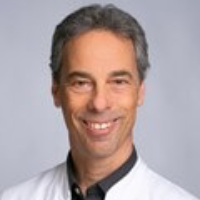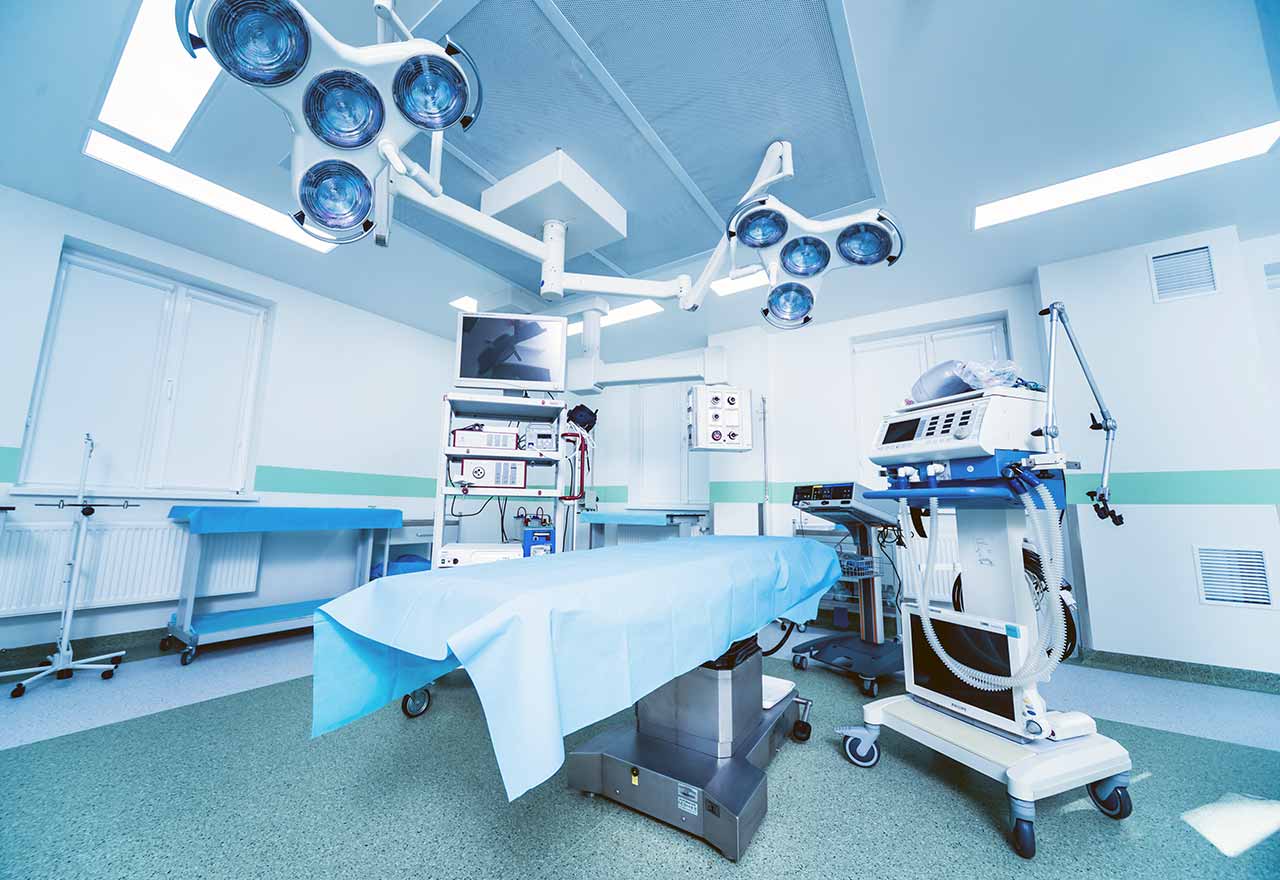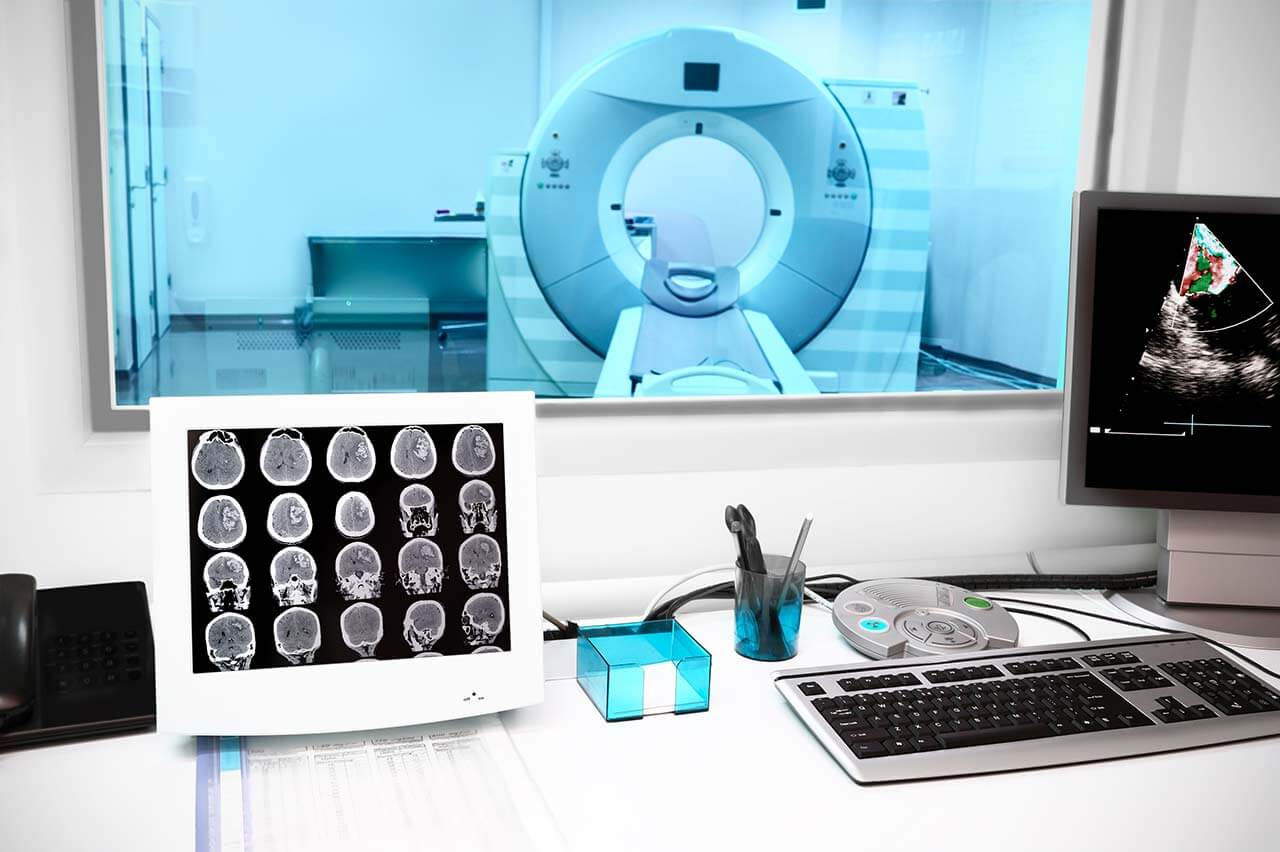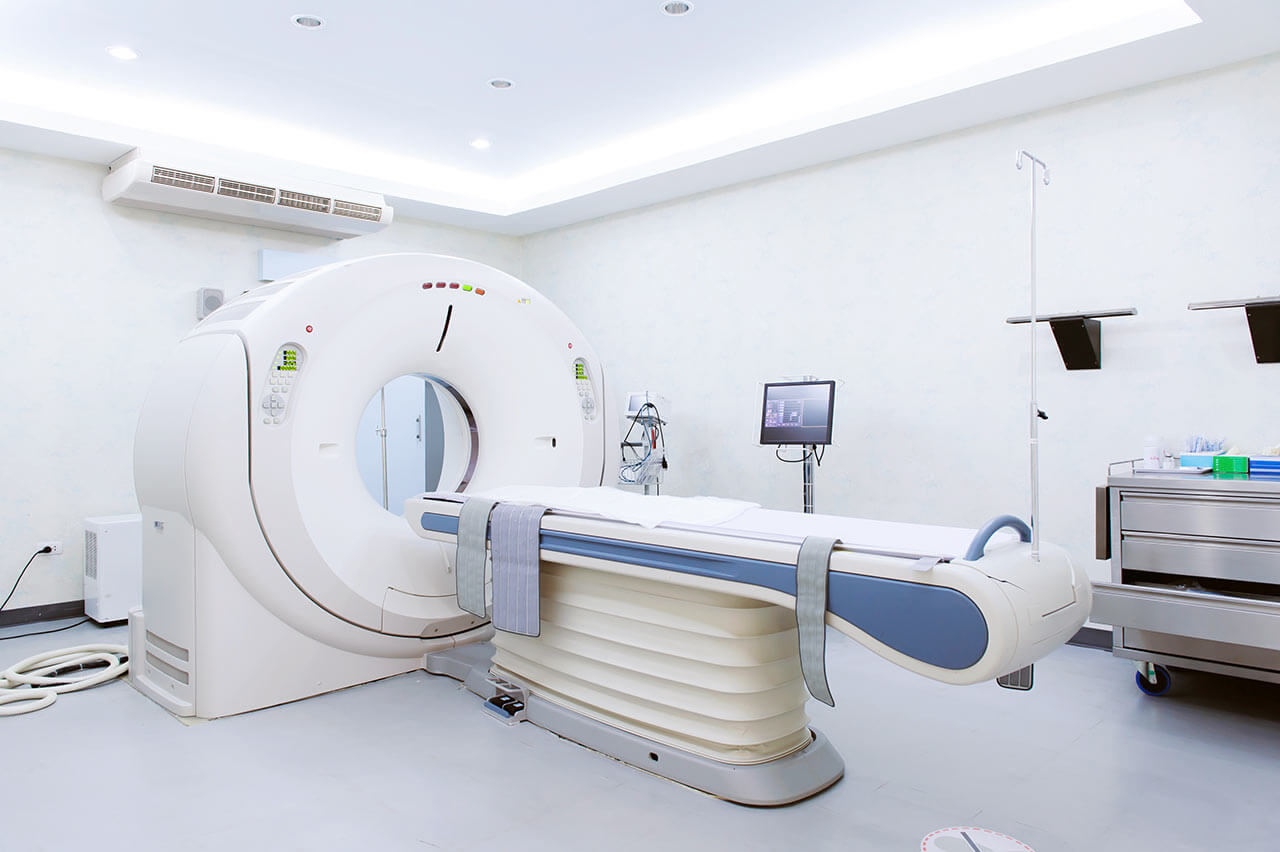
The program includes:
- Initial presentation in the clinic
- clinical history taking
- review of medical records
- physical examination
- laboratory tests:
- complete blood count
- general urine analysis
- biochemical analysis of blood
- TSH-basal, fT3, fT4
- tumor markers
- inflammation indicators
- indicators of blood coagulation
- CT scan / MRI of the abdomen and retriperitoneum
- abdominal and retroperitoneal ultrasound scan
- 1 course of chemotherapy
- nursing services
- consultations of related specialists
- treatment by head doctor and leading experts
- explanation of individual treatment plan
How program is carried out
During the first visit, the doctor will conduct a clinical examination and go through the results of previous laboratory tests and instrumental examinations. After that, you will undergo an additional examination, including laboratory assessment of liver and kidney function, ultrasound scan. Based on the received results, the doctor will elaborate the chemotherapy regimen. If necessary, related medical specialists will be involved in the elaboration of a treatment regimen (tumor board).
Chemotherapy is carried out as the inpatient procedure, with mandatory admission to the hospital. After the placement of a venous catheter, you will stay in a comfortable ward. An infusion system will be connected to the catheter, through which the required drug or a drug combination will be administered. All drugs are administered by intravenous drip, slowly, so the total duration of the infusion can be up to several hours. All this time, doctors and nurses will monitor your health condition closely.
After the course of chemotherapy, you will stay under medical supervision in the ward for a few more hours. After the completion of the chemotherapy course you will receive the medical report with detailed recommendations regarding further treatment. In the future, you will be able to have a distant consultation with your attending physician and schedule the next course of chemotherapy, if necessary.
Required documents
- Medical records
- MRI/CT scan (not older than 3 months)
- Biopsy results (if available)
Service
You may also book:
 BookingHealth Price from:
BookingHealth Price from:
About the department
The Department of Pediatric Hematology and Oncology at the University Hospital Hamburg-Eppendorf provides a full range of medical services in its areas of specialization. The department's team of doctors treats young patients with solid malignant tumors of various localizations, blood cancer, and blood clotting disorders. Children from 0 to 18 years of age can receive medical care here. The department has gained extensive experience in the treatment of leukemia, brain tumors, and bone sarcomas. It is also one of the best medical facilities in Germany that specializes in bone marrow transplantation for the treatment of leukemia, solid tumors, benign blood diseases, and immunodeficiency disorders. Treatment is provided in accordance with the standards of the Society for Pediatric Oncology and Hematology (GPOH), which ensures high efficiency and safety of therapeutic measures. Since 2021, the department has had the status of a Children's Cancer Center certified by the German Cancer Society (DKG). The healthcare facility is one of the largest and most advanced children's clinics in all of Europe, and young patients from abroad regularly come here for treatment. The department treats more than 10,000 young patients each year, and performs about 40 bone marrow transplant procedures. The Head Physician of the department is Prof. Dr. med. Stefan Rutkowski.
The department's team of physicians has unparalleled clinical experience in the treatment of childhood leukemia. Specialists treat acute lymphoblastic leukemia, acute and chronic myeloid leukemia, and myelodysplastic syndrome. Leukemia is a serious diagnosis that requires a comprehensive diagnostic workup to confirm or exclude it. If leukemia is suspected, a general clinical examination, detailed laboratory diagnostics, bone marrow puncture followed by cytology and cytochemistry, lumbar puncture, and imaging tests are performed. An individualized treatment regimen is developed for each young patient based on an analysis of the child's medical history and a thorough study of the diagnostic data. The main method of treatment of childhood leukemia is chemotherapy. Treatment with cytostatic drugs is followed by supportive therapy to prevent relapse and alleviate the side effects of chemotherapy. In case of damage to the central nervous system or a high risk of spreading the oncological process to this area, brain irradiation is carried out in combination with chemotherapy. The last-line treatment for leukemia is a bone marrow transplant. The procedure consists of two stages: the first is high-dose chemotherapy (sometimes combined with radiation therapy), while the second is the transplantation of the patient's own (autologous) or donor (allogeneic) stem cells. In many situations, bone marrow transplantation is indicated for young patients with a high risk of leukemia relapse after chemotherapy.
The department's team of oncologists has all the necessary resources to provide highly effective medical care to young patients with brain tumors, the most common of which are astrocytomas, medulloblastomas, and ependymomas. The therapeutic process begins with a comprehensive diagnosis, including a general and neurological examination of the young patient, laboratory tests, computed tomography, magnetic resonance imaging, and biopsy. Treatment tactics depend on the type of brain tumor, its stage, grade, size, and location. In most cases, the first-line treatment is tumor resection surgery, which is performed by neurosurgeons. These operations are classified as particularly complex, require great skill on the part of the surgeon, and can take more than 6-8 hours. A surgical procedure is often followed by chemotherapy and/or radiation therapy. If the tumor is located near vital structures, the main methods of suppressing the oncological process are drug treatment with cytostatic drugs and radiation therapy. Supportive therapy may be performed if clinically indicated.
The department's specialists also treat osteosarcoma, the most common bone malignancy in children and adolescents. Osteosarcoma is mostly localized in the femur, tibia, or humerus. In the early stages of the oncological process, the symptoms may be unnoticeable, but as the tumor grows, they become more pronounced: pain in the affected bone, swelling, and limited mobility appear. Diagnosis of osteosarcoma is based on imaging tests (X-ray, CT, and MRI) and biopsy. If the diagnosis is confirmed, the child will have to undergo surgery to remove the tumor. The extent of the resection depends on the size of the tumor and the stage of the cancer, but in all cases, a small amount of surrounding tissue will be removed along with the tumor to rule out the presence of cancer cells in it. In most cases, doctors are able to perform sparing surgery that preserves the limb. It is quite often necessary to implant a metal prosthesis or bone graft to replace the bone defect. In many cases, chemotherapy is given before or after surgery, and in rare cases, radiation therapy may also be used.
The department's clinical focuses are as follows:
- Oncology
- Diagnostics and treatment of solid malignant tumors
- Diagnostics and treatment of brain tumors
- Diagnostics and treatment of neuroblastoma
- Diagnostics and treatment of rhabdomyosarcoma
- Diagnostics and treatment of Wilms tumor
- Diagnostics and treatment of osteosarcoma
- Diagnostics and treatment of hepatoblastoma
- Diagnostics and treatment of malignant blood diseases
- Diagnostics and treatment of leukemia
- Diagnostics and treatment of Hodgkin's and non-Hodgkin's lymphomas
- Diagnostics and treatment of solid malignant tumors
- Hematology
- Diagnostics and treatment of hemophilia A or B
- Diagnostics and treatment of von Willebrand disease
- Diagnostics and treatment of anemia
- Diagnostics and treatment of thrombocytopenia
- Diagnostics and treatment of thalassemia
- Diagnostics and treatment of immunodeficiency disorders
- Other medical services
Curriculum vitae
Higher Education and Professional Career
- 10.1988 - 04.1995 Medical studies, University of Bonn.
- 12.06.1995 Medical examination, University of Bonn.
- 06.1996 Thesis defense, University of Frankfurt. Subject: "Cytokines in the umbilical cord blood of mature newborns and premature infants during normal pregnancy and under the influence of perinatal stress and infections".
- 12.2003 Board certification in Pediatric and Adolescent Medicine.
- 01.2007 Habilitation, Faculty of Medicine, University of Wuerzburg.
- 04.2007 Venia legendi in Pediatrics, University of Wuerzburg.
- 02.2008 Specialization in Pediatric Oncology and Hematology, Munich Medical Association.
- 03.2009 - 02.2016 W2 Professorship for Pediatric Hematology and Oncology, University Hospital Hamburg-Eppendorf.
- Since 03.2016 W3 Professorship for Pediatric Hematology and Oncology, University Hospital Hamburg-Eppendorf.
Medical Practice
- 07.1995 - 08.2002 Intern and Research Fellow, University Hospital Wuerzburg.
- 07.2002 - 02.2009 Senior Physician, Department of Pediatric Oncology, University Hospital Wuerzburg.
- 03.2009 - 02.2016 Deputy Head Physician, Department of Pediatric Hematology and Oncology, University Hospital Hamburg-Eppendorf.
- Since 03.2016 Head Physician, Department of Pediatric Hematology and Oncology, University Hospital Hamburg-Eppendorf.
Other Activities
- Since 11.2002 Elected Leader of the HIT-MED Research Group of the Society for Pediatric Oncology and Hematology (GPOH).
- Since 03.2006 Representative of the Medical Network HIT of the Society for Pediatric Oncology and Hematology (GPOH).
- 01.2007 - 06.2012 Chairman of the European PNET Working Group of the International Society of Pediatric Oncology (SIOP), research on medulloblastoma and primitive neuroectodermal tumors.
- 11.2009 - 12.2015 Board Member of the Society for Pediatric Oncology and Hematology (GPOH).
- 03.2012 Scientific Director of the conference of the nationwide medical network HIT within the framework of the Comprehensive Cancer Center Hamburg.
- 09.2012 -12.2015 First Deputy Chairman of the Society for Pediatric Oncology and Hematology (GPOH).
- Since 04.2014 Member of the Ethics Committee of the Hamburg Medical Association.
- Since 06.2014 Research Director, multicenter study PNET5-MB of the International Society of Pediatric Oncology (SIOP), sponsor: University Hospital Hamburg-Eppendorf.
- Since 06.2014 Chairman of the Committee on Brain Tumors in Children, European Section of the International Society of Pediatric Oncology (SIOP).
Prizes, Awards, and Honors
- 06.2005 Kind Philipp Prize for the best scientific work in pediatric oncology in German-speaking countries.
- 09.2011 Adam Balinski Teaching Prize, Hospital for Sick Kids, Toronto, Canada.
- 11.2016 Prize for postoperative care of children in Germany after cancer treatment.
- 11.2017 Research Prize of the Hamburg Cancer Society.
Memberships in Professional Societies
- Society for Pediatric Oncology and Hematology (GPOH).
- German Cancer Society (DKG).
- International Society of Pediatric Oncology (SIOP).
Photo of the doctor: (c) Universitätsklinikum Hamburg-Eppendorf (UKE)
About hospital
According to the Focus magazine, the University Hospital Hamburg-Eppendorf is one of the top ten hospitals in Germany!
Since its foundation in 1889, the hospital has taken a leading position in the European medical arena, which it still holds today. A highly competent medical team of more than 15,300 employees takes care of the health of patients. Approximately 2,900 of them are physicians and researchers, and more than 3,400 work as nurses and therapists. The hospital has 1,738 beds for inpatient treatment, and many diagnostic and therapeutic services are provided on an outpatient basis. A solid foundation for successful clinical practice in the medical complex is formed by a combination of research achievements with state-of-the-art equipment and the highest professionalism of doctors. In addition, the hospital has a modern and extremely comfortable infrastructure. The most important value for every employee of the University Hospital Hamburg-Eppendorf is the health and well-being of every patient.
The medical facility was the first university hospital in Europe to implement an electronic system for storing patient medical reports. As a result, all diagnostic and treatment protocols are stored electronically. In 2011, the hospital was certified as the first fully digital hospital in Europe.
The hospital represents all areas of modern medicine. The doctors of the healthcare facility have a wealth of theoretical knowledge and vast clinical experience, which allows them to easily cope with the treatment of both common and extremely rare, complex clinical cases. About 550,000 patients are treated here each year, over 450,000 of whom receive outpatient medical care.
An important part of the work of the University Hospital Hamburg-Eppendorf is research activities aimed at developing innovative diagnostic and treatment methods. The main areas of research of the hospital include neurobiology, oncology, cardiovascular research, and research on infectious and inflammatory diseases. Special attention is also given to research in molecular imaging and skeletal biology.
The hospital is distinguished by its first-class level of medical care, which is confirmed by numerous quality certificates of European and international standards: DIN EN IS0 9001 certificate, certificates of the German Cancer Society (DKG) in the treatment of breast cancer, colon cancer, gynecological cancer, prostate cancer, and other oncological diseases, certificate of the German Cardiac Society (DGK) in the treatment of acute coronary syndrome, certificate of the German Spine Society (DWG), and others.
Photo: (с) depositphotos
Accommodation in hospital
Patients rooms
The patients of the University Hospital Hamburg-Eppendorf stay in comfortable single and double bright rooms with a modern design. Each patient room has an ensuite bathroom with a shower and a toilet. The standard patient room furnishings include an automatically adjustable bed with an orthopedic mattress, a bedside table, a wardrobe, a table and chairs for receiving visitors, a telephone, a radio, and a TV. Wi-Fi access is available in patient rooms and throughout the hospital.
If desired, patients can stay in single enhanced-comfort rooms. These rooms are more spacious and are equipped with upholstered furniture, a safe, and a mini-fridge.
Meals and Menus
The hospital offers three meals a day: breakfast, lunch, and dinner. Breakfast and dinner are served in the form of buffets, and for lunch you can choose from several set menus – in total, more than 20 dishes are served for lunch, including vegetarian ones.
If, for some reason, you cannot eat all of the foods, you will be offered an individual menu. Please inform the medical staff about your dietary preferences prior to the treatment.
Further details
Standard rooms include:
![]() Toilet
Toilet
![]() Shower
Shower
![]() Wi-Fi
Wi-Fi
![]() TV
TV
Religion
Religious services are available upon request.
Accompanying person
During the inpatient program, an accompanying person may stay with you in a patient room or hotel of your choice.
Hospital accommodation
During the outpatient program, you may stay in a hotel at the hospital.
Hotel
During the outpatient program, you may stay in a hotel of your choice. Managers will help you choose the most suitable options.
The hospital offers a full range of laboratory tests (general, hormonal, tests for infections, antibodies, tumor markers, etc.), genetic tests, various modifications of ultrasound scans, CT scans, MRI and PET / CT, angiography, myelography, biopsy and other examinations. Treatment with medications, endoscopic and robotic operations, stereotaxic interventions is carried out here, modern types of radiation therapy are also used. The hospital offers patients all the necessary therapeutic techniques.
- Coiling and clipping of aneurysms of different localizations
- Transjugular intrahepatic portosystemic shunting in patients with portal hypertension
- Minimally invasive surgeries (da Vinci)
- Removal and reconstruction of mammary glands
- Hyperthermic intraperitoneal chemotherapy (HIPEC)
These are arteriovenous malformations and angiomas, vascular aneurysms, pathologies of the mammary glands, pelvic organ prolapse, urinary incontinence, malignant tumors of various localizations (area of special attention is treatment of intestinal cancer), pathologies of liver and pancreas, cataracts and rare ophthalmic pathologies (aphakia, aniridia ), infertility and other diseases.
- Interventional neuroradiology
- Mammology
- Oncology
- Gastroenterology
- Surgery
Over 2,900 highly qualified physicians and researchers work at the hospital.





